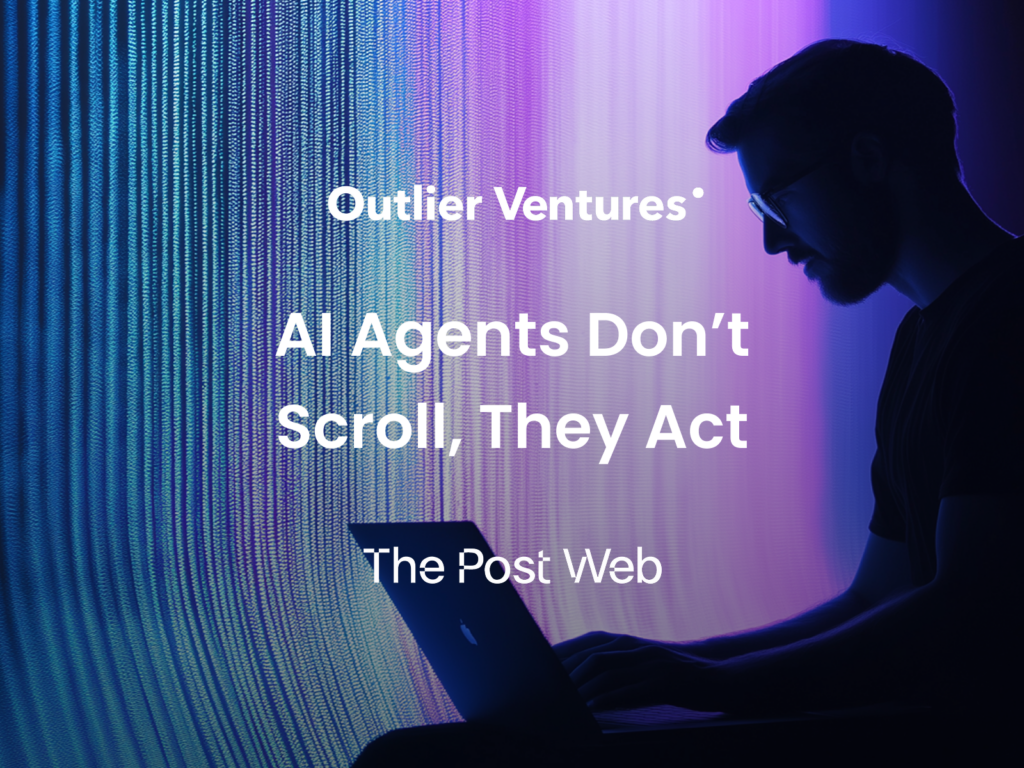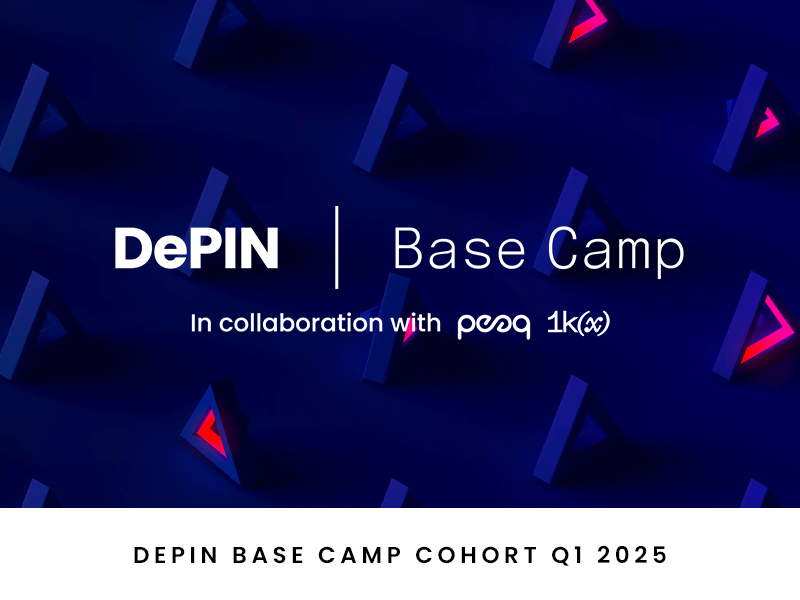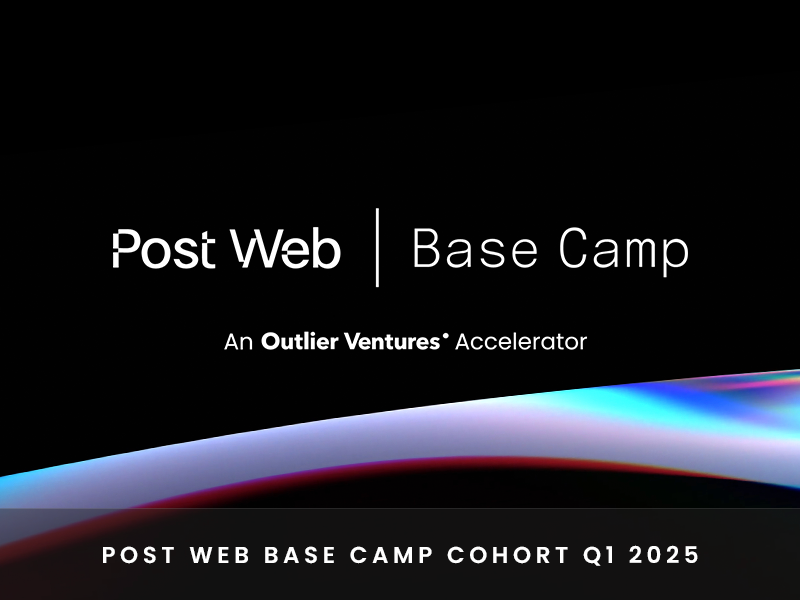Welcome back to The Post Web Deep Dive, an exploration of Outlier Ventures’ latest thesis that outlines how AI, Web3, and decentralization converge to reshape the internet.
The accelerating convergence of AI with the robust infrastructure of decentralized technologies is changing the landscape entirely.
The powerful synergy is birthing an era where autonomous AI agents are not just a futuristic concept, but a rapidly approaching reality poised to redefine how we interact with the internet and conduct economic activity.
But now that the hype around agents is everywhere, the real question is: where does it go from here?
AI Agents & The Post Web
Agents are the New Interface, Designed for Delegation
These intelligent systems, capable of interpreting user intent and executing complex tasks with minimal human intervention, signify a monumental shift, unlocking a plethora of opportunities for innovation across various sectors. The framework of The Post Web, and the anticipated evolution beyond the current web paradigm, provides the crucial context for understanding and capitalizing on the growing field of AI agents.
At the core of The Post Web is the idea of delegation. Users won’t manually tap and click their way through the internet. Instead, they’ll delegate intent to AI agents that navigate services, infrastructure, and markets on their behalf.

This shift unlocks a huge frontier of opportunities, starting with the tools and infrastructure needed to power agent systems. Expect to see massive demand for:
- Agent SDKs and training frameworks
- Orchestration layers for multi-agent coordination
- Secure deployment environments
- Tooling to define, verify, and monitor agent behavior
As the number and variety of agents explodes, so does the need for systems that can manage complexity and ensure trust.
Building Trust in Autonomous Agents
Central to the successful adoption of autonomous agents will be the establishment of unwavering trust. This necessitates the development of robust security protocols and transparent verification mechanisms, potentially leveraging the immutable nature of DLT to guarantee that agents act in accordance with user intentions and to effectively mitigate the risks of malicious behavior. On-chain verification of agent actions will allow:
- Transparent audit trails
- Cryptographic guarantees of compliance
- Mitigation of malicious behavior
- Agent reputation and accountability
The Post Web’s Intention Economy depends on these mechanisms because trust is what unlocks scale.
Be First. Shape the Agent Economy.
Applications are now open for the second Post Web Accelerator.
If you’re ready to meet the new wave of demand — building AI agents, decentralized infrastructure, and machine-native applications — this is your opportunity to work alongside the pioneers shaping tomorrow’s internet. Access to investment, hands-on support, and a global network to bring your vision to life.
Applications are open, but not for long.
The Rise of Specialized AI Agents
The envisioned Post Web Intention Economy, where the internet optimally organizes around solving user intents, will fuel an immense demand for specialized AI agents tailored to specific needs and purposes.
- Personal Delegation Agents handling everything from schedules to finances
- Financial Agents executing DeFi transactions and managing digital assets
- Data & Research Agents gathering and curating high-integrity data
- DAO Governance Agents voting and participating in decentralized governance
And, each specialization creates a new opportunity for founders.
The Agent Stack
Agents won’t just appear out of thin air.
They need an entire ecosystem to operate, grow, and unlock real economic value. For founders, this is the real frontier: building the picks and shovels for the agent economy.
Let’s look at where some of the biggest opportunities lie:
Agent Marketplaces and Reputation Systems
The rise of AI agents will create a wild west of online services, and not every agent will be trustworthy.
Founders who build the marketplaces where users find, verify, and deploy reliable agents will have massive first-mover advantages. Imagine an “App Store” but for autonomous agents:
- Compare how agents actually perform (speed, success rate, security) not just what they claim.
- On-chain reputation proves how agents behave over time, making it easy to spot reliable vs risky services.
- Smart matching engines connect users with the right agent for the right job, in real time.
Trust will be everything, and marketplaces that make trust verifiable will win.
Personalized Interfaces and the Role of the Thin Web
Even in an agent-driven world, humans still crave interaction. This creates huge demand for dynamic, personalized interfaces that adapt in real time based on user intent, preferences, and needs.
Enter the Thin Web. Unique interfaces generated on the fly by AI agents, tailored to you personally.
Think shopping experiences that feel like private consultations, games that adjust in real-time to your style of play, or social apps that surface connections or communities based on deeper intent signals.
Founders who build these human-centric layers on top of agent infrastructure will shape the emotional and social fabric of The Post Web.
The Infrastructure Behind the Agents
Agents will need resources to operate: compute, storage, bandwidth, identity. Centralized bottlenecks won’t scale, and they won’t be trusted. That’s where DePIN come in:
- Distributed compute for agent training and reasoning.
- Decentralized storage for agent memory and data persistence.
- Ubiquitous, resilient connectivity layers for agent-to-agent coordination.
Building APIs, smart contracts, and dApps that allow agents to autonomously and securely tap into decentralized infrastructure is a massive open design space. Smart founders are already building it.
Together, these layers form the new digital backbone, the invisible engine room of the agent economy. Building for this stack isn’t just a technical challenge. It’s a once-in-a-decade chance to lay the foundations of tomorrow’s web, and define the next era of our lives. Explore emerging business models in the second blog of this series.
What’s Next for Agent Innovation?
Realizing the full potential of AI agents hinges on continuous progress in their core capabilities.
This evolution will be powered by advances in learning paradigms like reinforcement learning (RL) and retrieval-augmented generation (RAG), which improve decision-making, context awareness, and reasoning. As agents begin to collaborate to solve complex problems, we’ll also need secure and efficient protocols for inter-agent communication and coordination, enabling the rise of sophisticated multi-agent systems.
But innovation can’t happen in isolation. Addressing foundational challenges will unlock new opportunities across the board.
For starters, digital identity and reputation systems for agents must be built from the ground up to ensure accountability and build trust. As agents become embedded in everything from personal finance to enterprise ops, clear governance frameworks will be essential to prevent misuse and protect users.
At the same time, breakthroughs in privacy-enhancing technologies (PETs) and secure communication protocols will be critical for enabling sensitive task delegation without compromising user data.
The future of agent innovation will require as much infrastructure and trust as it does intelligence. Those who build the tools, systems, and standards of this emerging layer will shape not just the future of AI, but the very fabric of our future lives.
The Web Is Disappearing. Here’s How You Can Stay Ahead.
Chapter One of our latest thesis dives deeper into the architecture, challenges, and opportunities of AI agents in The Post Web, from infrastructure and training to coordination, trust, and user experience.





